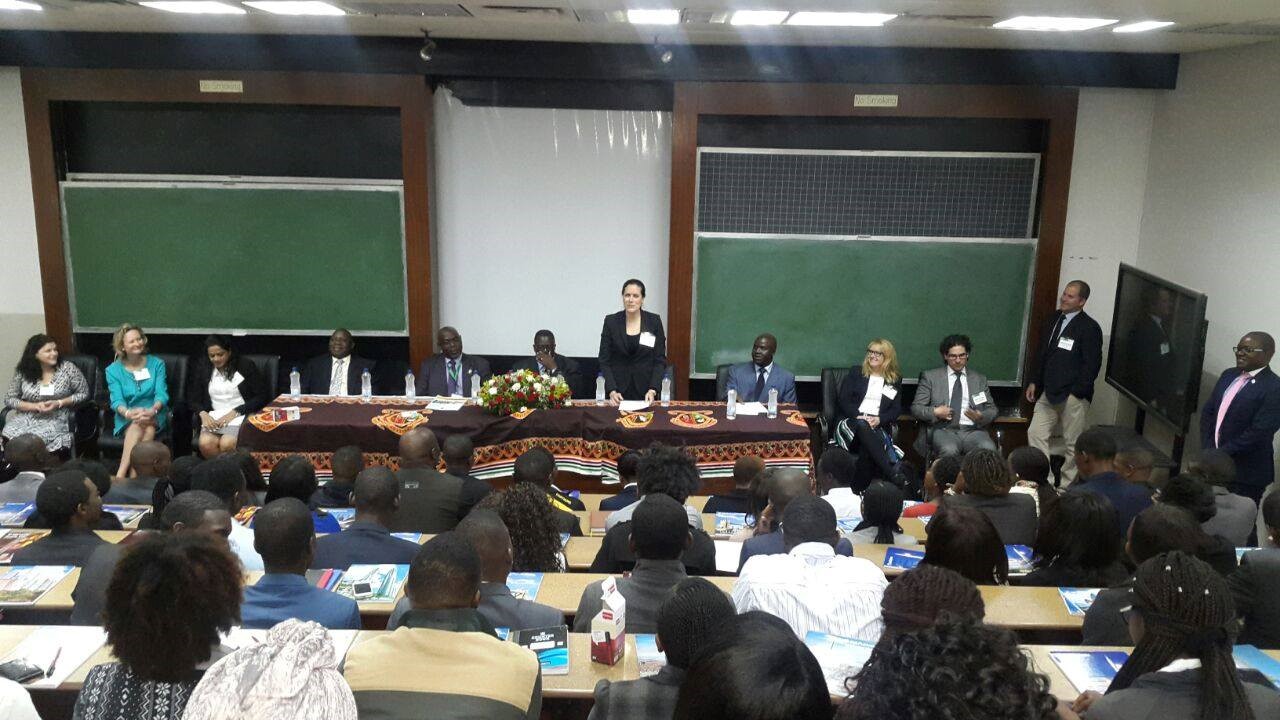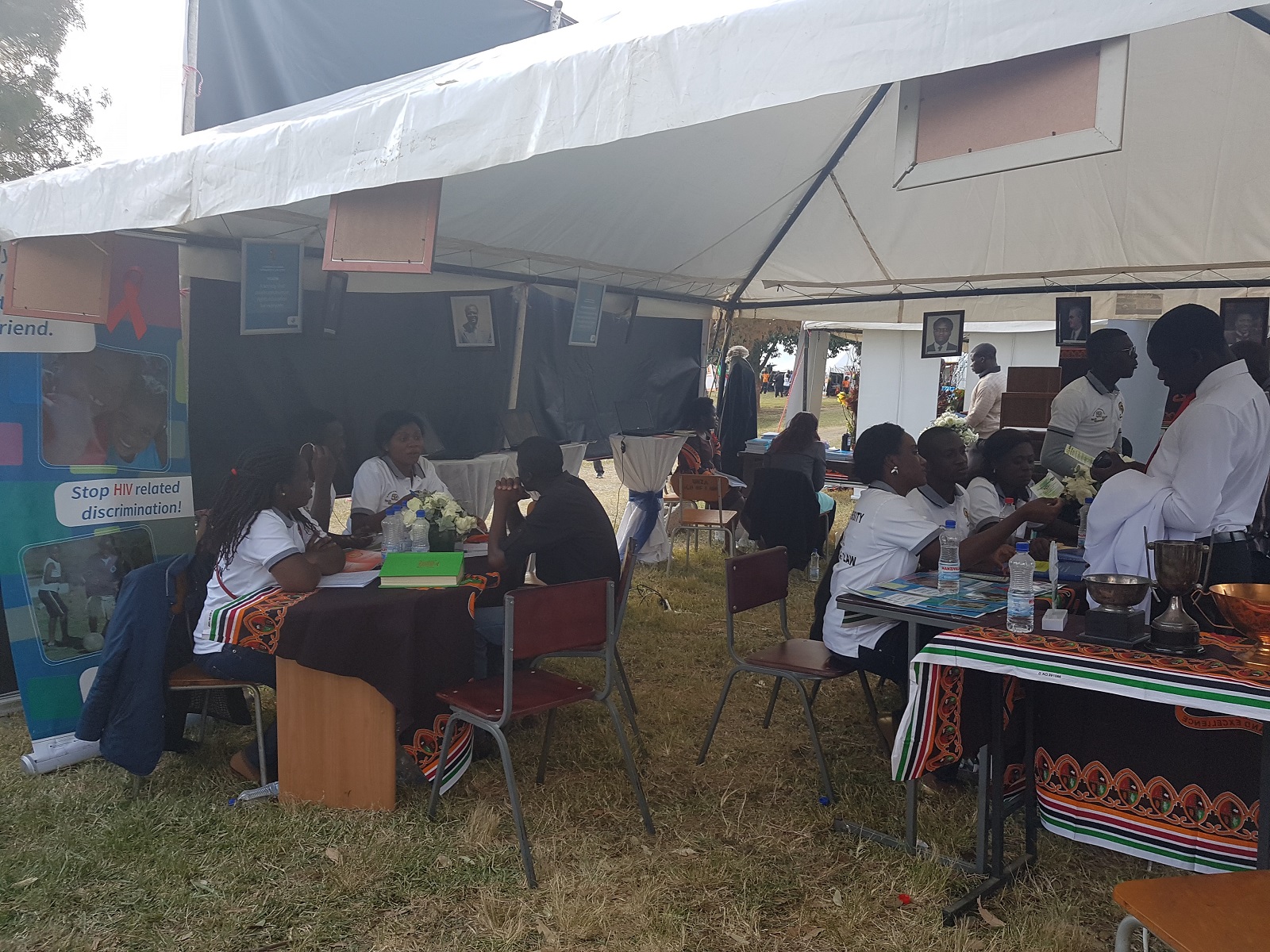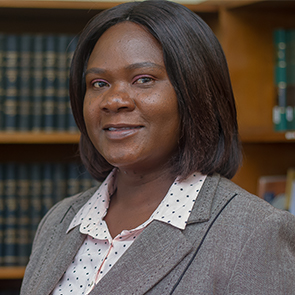The School of Law implements a number of projects in collaboration with cooperating partners. The projects have been implemented in line with the School’s vision of providing innovative legal education that is socially responsive. Some of the projects implemented by the University include the following:
Legal Writing Training in partnership with funding support by New Perimetwer Inc. (DLA Piper)

The School of Law conducts one-week training on legal writing and analysis to 2nd Year law students on annual basis. The training is funded by the New Perimeter Inc., a Delaware non-profit corporation wholly owned the global law firm DLA Piper under an MOU signed between UNZA and New Perimeter Inc. Under this MOU, New Perimeter Inc. and its partner Boehringer Ingelham (BI) sends lawyers from different parts of the world to teach UNZA students legal drafting and analysis skills. Under the same programmes, the best performing student during the one week training is awarded a fully sponsored internship at BI.
New Perimerter Inc. has also contributed to capital improvements at the Law Clinic site at the UNZA Show Grounds stand. The Company has also financed purchase of prescribed textbooks for teaching and the Law school Library. New Permeter Inc. has also donated laptops to the School for use by the students.
University Law Clinic with funding support by Human Rights Development Initiative (HRDI)
The School with funding by Human Rights Development Initiative (HRDI) trained a team of members of staff to teach Clinical Legal education and manage the Law Clinic. HRDI worked with UNZA until 2014 when the HRDI project was closed. Soon thereafter, the School obtained funds from DLA Piper to contribute to the renovations of UNZA Showground stand to be used as the Law Clinic site. The Law Clinic was launched on 21st October 2014 despite the lack of office space. This enabled the Clinic to start implementing activities.
Since the launch, the Clinic has carried out the following activities, among others:
- Teaching of Clinical Legal Education;
- Training of the following members of staff in one or more areas of clinical legal education;
- Community trainings and awareness raising, particularly on HIV, disability and the Law in Kalikiliki and 6 Miles;
- Self-advocate High Level Meeting held in 2015 at Cresta Golf View;
- Series radio programmes on the various rights of persons with disabilities done at UNZA radio;
- Provision of legal advice to clients referred to the clinic by partner organisations:
- Provision of research and training support to partner organisations;
- Street law activities undertaken by students under supervisions of their lectuerers in various schools and instutions; and
- Facilitating student attachment to leagal aid providers and law firms for their practical experience and contribution to community service.
Through a Memorandum of Understanding with the United Nations, the School was able to solicit a wide range of human rights books that are available for use by all law students.
Disability Rights Project with funding support by Open Society Initiative in Southern Africa (OSISA)

The School is implementing a Disability Rights Project with funding support by the Open Society Initiative in Southern Africa (OSISA). The Project aims at advancing the rights of persons with disabilities in Zambia and the Southern African Region. The Project is heavily guided by the United Nations Convention on the Rights of Persons with Disabilities (UNCRPD).
The disability rights project has, among others, implemented the following activities since its inception:
- Teaching of the disability rights law clinic activities through trial advocacy, Seminars on disability rights and guest lectures on various disability related topics;
- Training of members of staff in one or more areas of disability rights law;
- Community trainings, advocacy and awareness raising on disability rights;
- Series Radio programmes disability rights;
- Provision of legal advice to clients referred to the Law Clinic by partner organisations;
- Provision of research and training to partner organisations and implement other joint activities.
- Preparing joint funding project proposals with partner organisations with similar objectives;
- Conduct high level meetings with the Judiciary, Parliament and other institutions targeted influencing law reform.
- Submit to National Assembly on accessibility of Zambia’s electoral process to persons with disabilities; and
- In partnership with the School of Education, develop the UNZA Disalbility Policy.
Gender Mainstreaming Project with funding support from the Norwegian Development Agency (NORAD) programme called the Norwegian Higher Education Development Project (NORHED)
The School of Law with funding support from the Norwegian Development Agency (NORAD) programme called the Norwegian Higher Education Development Project (NORHED) is implementing a Project aimed at mainstreaming gender in the law curricula. The NORHED Project offered funding over a five year period (2013 through 2018) for collaborative north-south, south-south capacity building in higher education, research and development in a wide range of disciplines.
The purpose of the project is “strengthened capacity among academic staff members at the four LMIC partner law schools/ faculties to review, revise, and integrate the right to gender equality and non-discrimination and relevant social economic rights into courses taught.
The Programme budget sets out 4 major budget lines out of which three are active for Zambia. These are the Masters’ programme budget, the PHD, post doc and research budget, and the administration budget. For purposes of detailed planning of activities, Zambia has concentrated on the PHD, post doc and research budget lines. The expected programme outputs of the University of Zambia, School of Law component will therefore come from activities under the PHD, post doc and research activities. The budget covers the research component of two PHD scholarships, unspecified number of post docs and research activities. NORHED is also funding the travel and accommodation costs of the staff teaching at SEARCWL or attending any other academic or administrative or academic activities. The University of Zambia is contributing the tuition, study leave and salary expenses of the PHD candidates and post docs. The University is also providing paid leave for the staff teaching at SEARCWL on a voluntary basis.
The Project was launched in April 2015. Invited stakeholders included The ministers of Gender and Justice, Superior court judges including the Deputy Chief Justice, members of the lower bench, the NORAD officer at the Norwegian Embassy, the President of the Law Association of Zambia, the National Legal Aid Clinic for Women, the media, the Vice Chancellor and deans of all the Schools of The University of Zambia and members of the School of Law faculty.
Under the Project, the School has managed to review its LLB curricula to mainstream gender. The School has planned to review its post graduate programmes to mainstream gender before the end of the project cycle. The School is training one (1) PhD candidate in Gender and two (2) Post Doc candidates. The School boasts of being the first School to offer Post Doc training at the University.
Ongoing Research
- The School of Engineering research project in corroboration with the School of Law, the project is entitled the Right to Public Participation: An Option for Reducing Corruption in Procurement in Zambia. Funded by the Department for International Development (DFID), the major projected outputs of the project so far includes the publication of a journal article and conducting conferences in Zambia.
- Chanda Nkoloma Tembo – Mapping of the ownership status of plant genetic resources for food and agriculture development by ZAMSEED and the implications for public feed RXD of staole food crops and food security in Zambia funded by the DRGS/UNZA seed fund.
- In 2017 the Law School launched the first ever Post-doctoral Research Programme in the University of Zambia. The programme is sponsored by the Norwegian Development Agency (NORAD) through the Norwegian Higher Education Development Project (NORHEP Project). There are currently two Post-doctoral fellows reaching in the following areas:
- Dr. Ellah Siang’andu – Evaluating the Gender Responsiveness of Laws
- Relating to Conditions and treatment of incarcerated
- Expectant and Nursing Mothers in Selected
- Correctional Facilities in Zambia
- Dr. Fatima Mandhu – Ecofeminism and Artisanal or Small Scale Mining (ASM)
- in Zambia: A Case Study of Kaingu Gem Mines and
- Lapidary Limited
- Dr. Ellah Siang’andu – Evaluating the Gender Responsiveness of Laws

